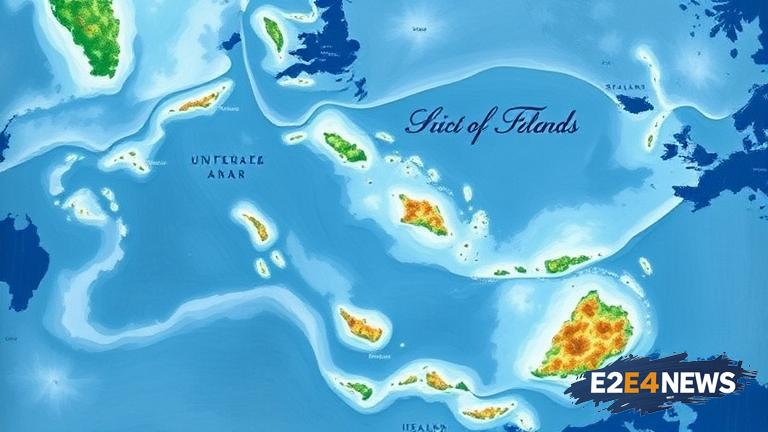In a groundbreaking collaboration, Ireland’s Marine Institute has partnered with the government of Barbados to undertake a comprehensive mapping of the island nation’s ocean territory. This ambitious project aims to promote sustainable development, marine conservation, and the responsible management of Barbados’ vast ocean resources. The initiative is expected to have far-reaching benefits for the environment, economy, and local communities. By leveraging cutting-edge technology and expertise, the team will gather crucial data on the seafloor, marine habitats, and ecosystems. This information will be used to inform policy decisions, support marine spatial planning, and identify areas of high conservation value. The project will also provide valuable insights into the impacts of climate change, ocean acidification, and other environmental stressors on Barbados’ marine ecosystems. Furthermore, the collaboration will facilitate the sharing of knowledge, expertise, and best practices between Ireland and Barbados, fostering a spirit of international cooperation and mutual understanding. The Marine Institute’s extensive experience in marine mapping and research will be instrumental in helping Barbados to develop a more comprehensive understanding of its ocean territory. The project’s findings will also contribute to the development of more effective conservation strategies, such as the establishment of marine protected areas and the implementation of sustainable fishing practices. In addition, the initiative will help to raise awareness about the importance of marine conservation and the need for sustainable management of ocean resources. The partnership between Ireland and Barbados serves as a model for international cooperation on marine conservation and sustainable development, demonstrating the potential for collaborative efforts to drive positive change. The project’s success will depend on the effective collaboration between the Marine Institute, the government of Barbados, and other stakeholders, including local communities, NGOs, and the private sector. By working together, these partners can ensure that the project’s outcomes are tailored to meet the specific needs and priorities of Barbados, while also contributing to the global effort to protect the world’s oceans. The mapping of Barbados’ ocean territory is a complex task that requires careful planning, coordination, and execution. The team will need to navigate challenging environmental conditions, including strong currents, deep waters, and coral reefs. However, the potential rewards of this project are significant, and the collaboration between Ireland and Barbados has the potential to make a lasting impact on the health of the world’s oceans. The project’s outcomes will also have important implications for the development of Barbados’ blue economy, which is a key sector for the island nation’s economic growth and development. By promoting sustainable development and marine conservation, the project can help to ensure that Barbados’ ocean resources are managed in a way that is both environmentally sustainable and economically viable. In conclusion, the partnership between Ireland’s Marine Institute and the government of Barbados is a significant step forward for marine conservation and sustainable development in the region. The project’s success will depend on the effective collaboration between all stakeholders, and its outcomes will have important implications for the health of the world’s oceans and the development of Barbados’ blue economy. The initiative serves as a model for international cooperation on marine conservation and sustainable development, and its findings will contribute to the global effort to protect the world’s oceans. The project’s impact will be felt for generations to come, and its success will be a testament to the power of collaborative efforts to drive positive change. The collaboration between Ireland and Barbados is a shining example of how international cooperation can be used to address some of the world’s most pressing environmental challenges. The project’s outcomes will be closely watched by the international community, and its success will be seen as a major achievement in the global effort to protect the world’s oceans.
